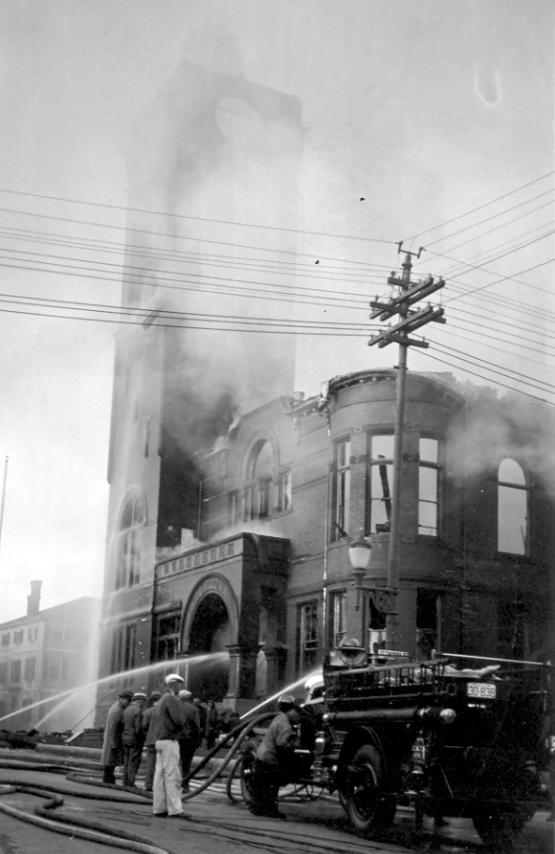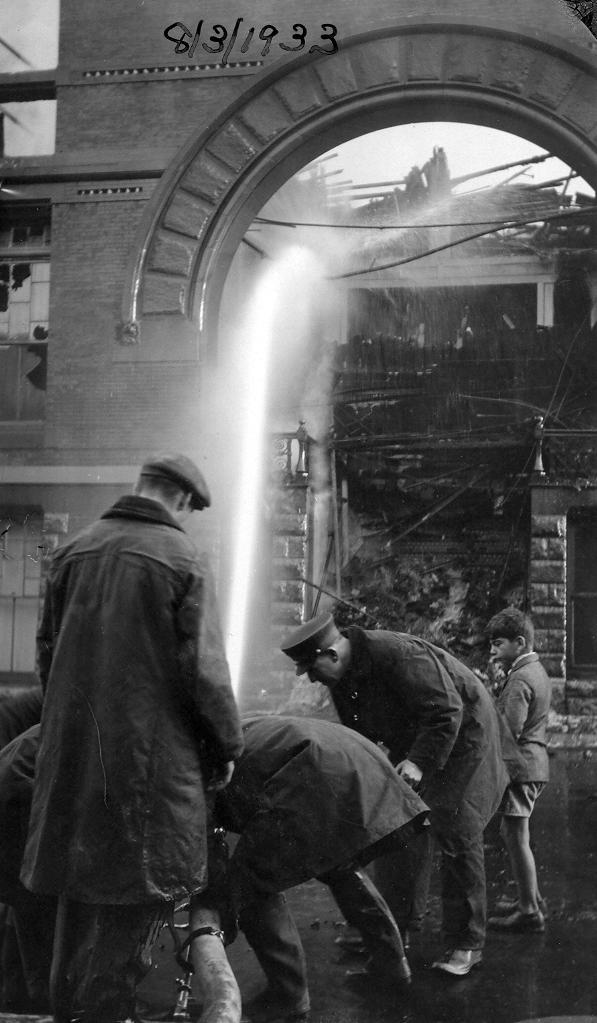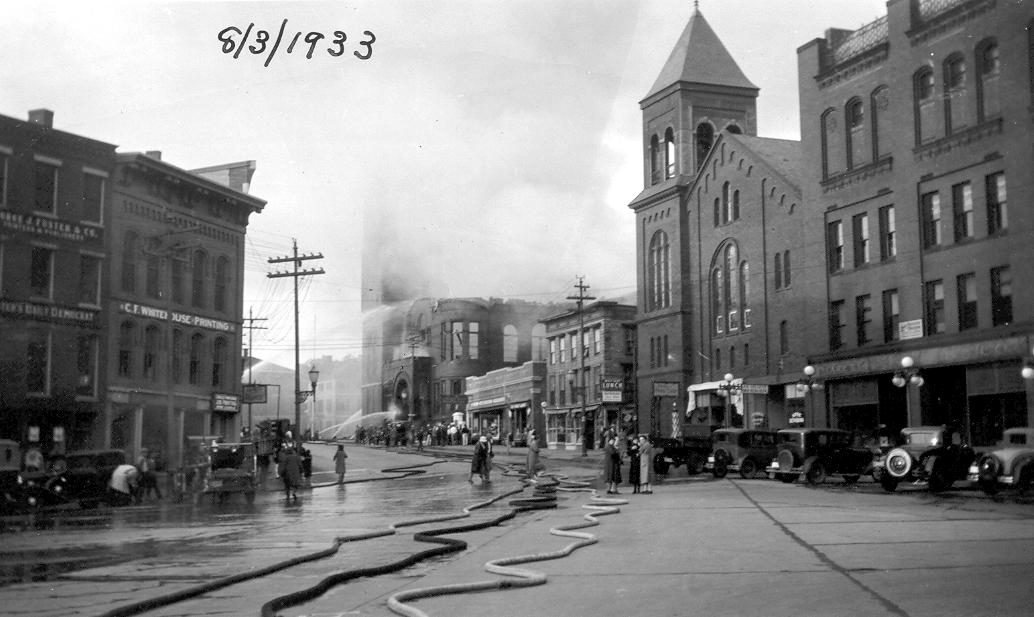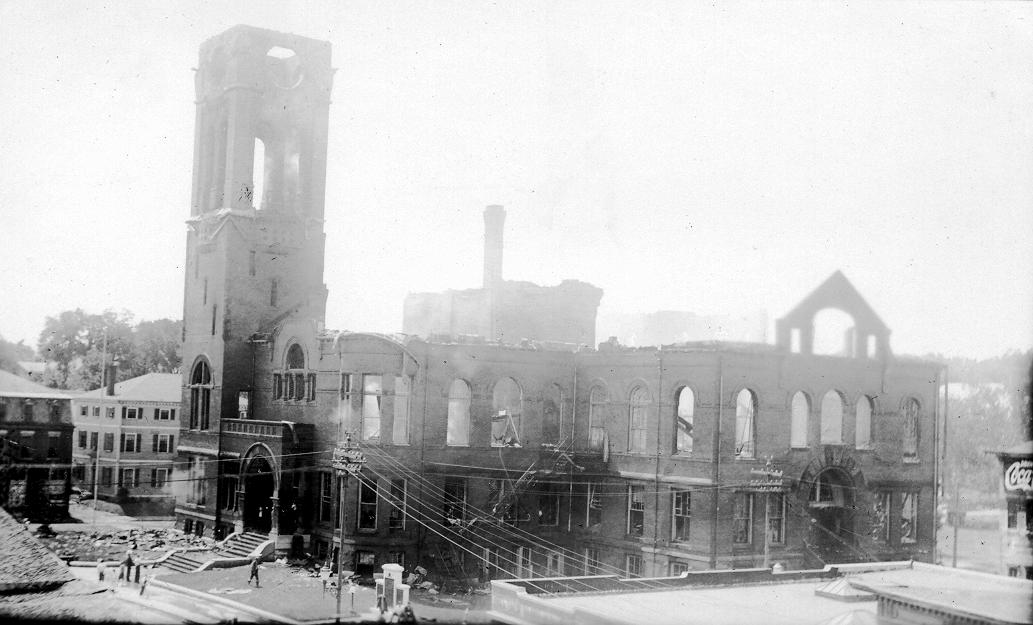Disclaimer
The Dover Public Library website offers public access to a wide range of information, including historical materials that are products of their particular times, and may contain values, language or stereotypes that would now be deemed insensitive, inappropriate or factually inaccurate. However, these records reflect the shared attitudes and values of the community from which they were collected and thus constitute an important social record.
The materials contained in the collection do not represent the opinions of the City of Dover, or the Dover Public Library.
The Third City Hall Burns
August 3, 1933
Dover's third city hall burned down. The City Hall and Opera house was dedicated December 16, 1891 and cost $250,00 to build. It featured a floor that could rise and fall, a chandelier with 95 electric bulbs, three tiers of boxes with brass rails, velvet curtains with gold fringe, a frescoed ceiling and a cupid mural. The Opera House had a seating capacity of 1800 and was the largest stage in New Hampshire. Luminaries such as Jason Robards, Alfred Lunt, Shirley Booth and John Philip Sousa’s band graced the stage. The first full length movie shown here was “Birth of a Nation” starring Lillian Gish.
The fire was first noticed by two patrolmen reporting for work who spotted smoke curling from the coping on the St. Thomas side of the street. City officials were immediately notified. Attempts were made to remove records and valuables but the fire quickly became so intense that efforts had to stop. Acting Chief Edward Knott said when the first line of hose was taken into the building up the main stairway to the auditorium, fire fighters were met with a roar of flames. “The whole inside of the opera house was like a roaring furnace. That is the only thing I can think of. The fire was all over the floor and completely enveloped the walls of the huge hall.” It was believed that the fire was caused by spontaneous combustions caused by the extreme heat of the past four days in a low blind attic under the slate roof. Fire departments from Rochester, Somersworth, Berwick and Portsmouth were all called on for assistance in battling the blaze. The owner of The Dover Bottling Company, “Nap” Pichette, provided free tonic to all the fire men. Motor Vehicle Inspector Foss was praised for his quick action in releasing the two prisoners and eight vagrants from the police station, as well as saving police records and uniforms. One prisoner was quite irate that no one would venture back into the flames to retrieve his shaving razor. A temporary police station was set up at Frank Davis’s store on Locust Street. Other municipal departments were scattered around the city to the Masonic Temple, the Armory, the High School, in vacant stores, and Tasker and Chesley’s funeral Parlor.
This historical essay is provided free to all readers as an educational service. It may not be reproduced on any website, list, bulletin board, or in print without the permission of the Dover Public Library. Links to the Dover Public Library homepage or a specific article's URL are permissible.




